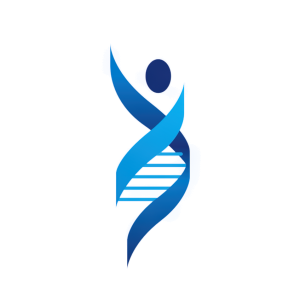Salarius Pharmaceuticals Adds Seattle Cancer Care Alliance and Oregon Health & Sciences as Clinical Sites for its Ongoing Trial of Seclidemstat as a Treatment for Ewing Sarcoma and FET-Rearranged Sarcomas
Rhea-AI Summary
Salarius Pharmaceuticals (NASDAQ: SLRX) has expanded its ongoing Phase 1/2 clinical trial of seclidemstat for Ewing’s sarcoma and related sarcomas to 15 U.S. trial sites, including the prestigious Seattle Cancer Care Alliance and Oregon Health & Sciences University. The trial explores seclidemstat, a targeted LSD1 inhibitor, in various combinations and as a single agent. Interim data is expected in the second half of 2022. Salarius aims to improve prospects for patients with limited treatment options, with seclidemstat already receiving FDA designations for its potential.
Positive
- Expansion of the Phase 1/2 trial to 15 U.S. locations enhances enrollment potential.
- Reputable institutions, including Seattle Cancer Care Alliance, are now involved in the study.
- Interim data expected to be reported in the second half of 2022.
- Seclidemstat is positioned as a potential treatment option for patients with Ewing's sarcoma.
Negative
- The Phase 1/2 trial is still ongoing, highlighting the uncertainty in drug development timelines.
- Relying on data from previous studies suggests potential risks if new data do not replicate past results.
News Market Reaction – SLRX
On the day this news was published, SLRX gained 3.14%, reflecting a moderate positive market reaction.
Data tracked by StockTitan Argus on the day of publication.
Clinical Trial Now Expands to Fifteen U.S. Trial Sites
HOUSTON, Aug. 04, 2022 (GLOBE NEWSWIRE) -- Salarius Pharmaceuticals, Inc. (NASDAQ: SLRX), a clinical-stage biopharmaceutical company developing therapies for patients with cancer in need of new treatment options, announces the addition of four prestigious institutions to the open-label Phase 1/2 trial with seclidemstat in Ewing’s sarcoma and FET-rearranged sarcomas. The Seattle Cancer Care Alliance (SCCA) – which is comprised of the Fred Hutchinson Cancer Research Center, Seattle Children's Hospital and University of Washington Medical Center – as well as Oregon Health & Sciences University in Portland are now supporting trial enrollment.
Seclidemstat is a novel oral, reversible, targeted LSD1 inhibitor that affects gene expression and is currently being studied in Phase 1/2 clinical studies for the treatment of solid and hematologic cancers where LSD1 is implicated in disease progression.
Clinical trial work at SCCA is being led by Lee Cranmer, M.D., Ph.D., FACP, Director of Sarcoma Medical Oncology, Associate Professor University of Washington School of Medicine and Associate Professor, Clinical Research Division Fred Hutchinson Cancer Research Center.
Enrollment at Oregon Health & Sciences University is being led by Lara E. Davis, M.D., Associate Professor of Medicine, Division of Hematology/Medical Oncology, School of Medicine, Co-Leader, Knight Cancer Institute Translational Oncology Program and Sarcoma Program Director.
“Salarius continues to advance the development of seclidemstat as a potential treatment for selected sarcomas and we believe that the addition of these prestigious organizations as clinical trial sites allows us to accelerate that development,” said David Arthur, chief executive officer of Salarius. “We expect to report interim data in the second half of this year and are hopeful that seclidemstat, either alone or in combination with standard chemotherapy, will have a positive impact on the lives of these patients.”
In addition to Seattle Cancer Care Alliance and Oregon Health & Sciences, clinical trial site locations include, Johns Hopkins All Children’s Hospital in St. Petersburg, FL; Children’s Hospital of Los Angeles in Los Angeles, CA; Moffitt Cancer Center in Tampa, FL; Dana-Farber Cancer Institute in Boston, MA; MD Anderson Cancer Center in Houston, TX; Nationwide Children’s Hospital in Columbus, OH; Memorial Sloan Kettering Cancer Center in New York City; and the Sarcoma Oncology Center in Santa Monica, CA; Virginia Cancer Specialists, Fairfax, Virginia; Cleveland Clinic, Cleveland, Ohio; Washington University, St. Louis, Missouri; Oncology Consultants, Houston, Texas and Fox Chase Cancer Center in Philadelphia PA.
About the Phase 1/2 Ewing’s and other FET-rearranged sarcomas trial
The Phase 1/2 trial currently is in its dose-expansion stage, which includes three patient arms. The first arm is enrolling up to 30 patients with Ewing’s sarcoma, a rare and deadly pediatric bone cancer, and will investigate seclidemstat in combination with topotecan and cyclophosphamide, a commonly used second- and third-line chemotherapy regimen. Salarius believes data released during ASCO 2021 demonstrated synergy in an Ewing’s sarcoma cell line when seclidemstat was used in combination with these agents. Salarius also believes this treatment combination and its use as a second- and third-line therapy could greatly expand the addressable patient population for seclidemstat and improve outcomes by allowing physicians to introduce seclidemstat earlier in the Ewing’s sarcoma continuum of care.
The trial’s second patient arm is investigating seclidemstat as a single agent in up to 15 patients with myxoid liposarcoma. The third patient arm is investigating seclidemstat as a single agent in up to 15 patients with select sarcomas that share a similar biology to Ewing’s sarcoma, also referred to as FET-rearranged or Ewing’s-related sarcomas. In data released at ASCO 2021, a subset of patients with advanced FET-rearranged sarcomas treated with single-agent seclidemstat resulted in stable disease and prolonged time to progression, which Salarius believes suggests disease control, a clinically relevant endpoint for soft tissue sarcomas.
All three patient arms are designed to evaluate safety and efficacy in patients with advanced disease. Salarius expects to report interim data updates in the second half of 2022.
About Salarius Pharmaceuticals
Salarius Pharmaceuticals, Inc. is a clinical-stage biopharmaceutical company developing therapies for patients with cancer in need of new treatment options. Salarius’ product portfolio includes seclidemstat, the company’s lead candidate, which is being studied as a potential treatment for pediatric cancers, sarcomas and other cancers with limited treatment options, and SP-3164, an oral small molecule protein degrader. Seclidemstat is currently in a Phase 1/2 clinical trial for relapsed/refractory Ewing’s sarcoma and certain additional sarcomas that share a similar biology, also referred to as Ewing’s-related or FET-rearranged sarcomas. Seclidemstat has received fast track, orphan drug and rare pediatric disease designations for Ewing’s sarcoma from the U.S. Food and Drug Administration. Salarius is also exploring seclidemstat’s potential in several cancers with high unmet medical need, with an investigator-initiated Phase 1/2 clinical study in hematologic cancers underway at MD Anderson Cancer Center. Salarius has received financial support from the National Pediatric Cancer Foundation to advance the Ewing’s sarcoma clinical program and was a recipient of a Product Development Award from the Cancer Prevention and Research Institute of Texas (CPRIT). For more information, please visit salariuspharma.com or follow Salarius on Twitter and LinkedIn.
Forward-Looking Statements
This press release contains “forward-looking statements” within the meaning of the Private Securities Litigation Reform Act of 1995. All statements, other than statements of historical facts, included in this press release are forward-looking statements. These forward-looking statements may be identified by terms such as “believe,” “developing,” “expect,” “hopeful,” “may,” “potential,” “progress,” “potential,” and similar terms or expressions or the negative thereof. Examples of such statements include, but are not limited to, statements relating to the following: the impact that the addition of additional clinical sites will have on the development of Salarius’ product candidates; interim data related to Salarius’ clinical trials, including the timing of when such data is available and made public; Salarius’ growth strategy; the value of seclidemstat as a treatment for Ewing sarcoma, Ewing-related sarcomas, and other cancers and its ability to improve the life of patients; expanding the scope of Salarius’ research and focus to high unmet need patient populations; milestones of Salarius’ current and future clinical trials, including the timing of data readouts. Salarius may not actually achieve the plans, carry out the intentions or meet the expectations or objectives disclosed in the forward-looking statements. You should not place undue reliance on these forward-looking statements. These statements are subject to risks and uncertainties which could cause actual results and performance to differ materially from those discussed in the forward-looking statements. These risks and uncertainties include, but are not limited to, the following: the sufficiency of Salarius’ capital resources; the ability of, and need for, Salarius to raise additional capital to meet Salarius’ business operational needs and to achieve its business objectives and strategy; future clinical trial results and impact of results on Salarius; that the results of studies and clinical trials may not be predictive of future clinical trial results; risks related to the drug development and the regulatory approval process; the competitive landscape and other industry-related risks; and other risks described in Salarius’ filings with the Securities and Exchange Commission, including its Annual Report on Form 10-K for the fiscal year ended December 31, 2021, as revised or supplemented by its Quarterly Reports on Form 10-Q and other documents filed with the SEC. The forward-looking statements contained in this press release speak only as of the date of this press release and are based on management’s assumptions and estimates as of such date. Salarius disclaims any intent or obligation to update these forward-looking statements to reflect events or circumstances that exist after the date on which they were made.
CONTACT:
LHA Investor Relations
Kim Sutton Golodetz
kgolodetz@lhai.com
212-838-3777








